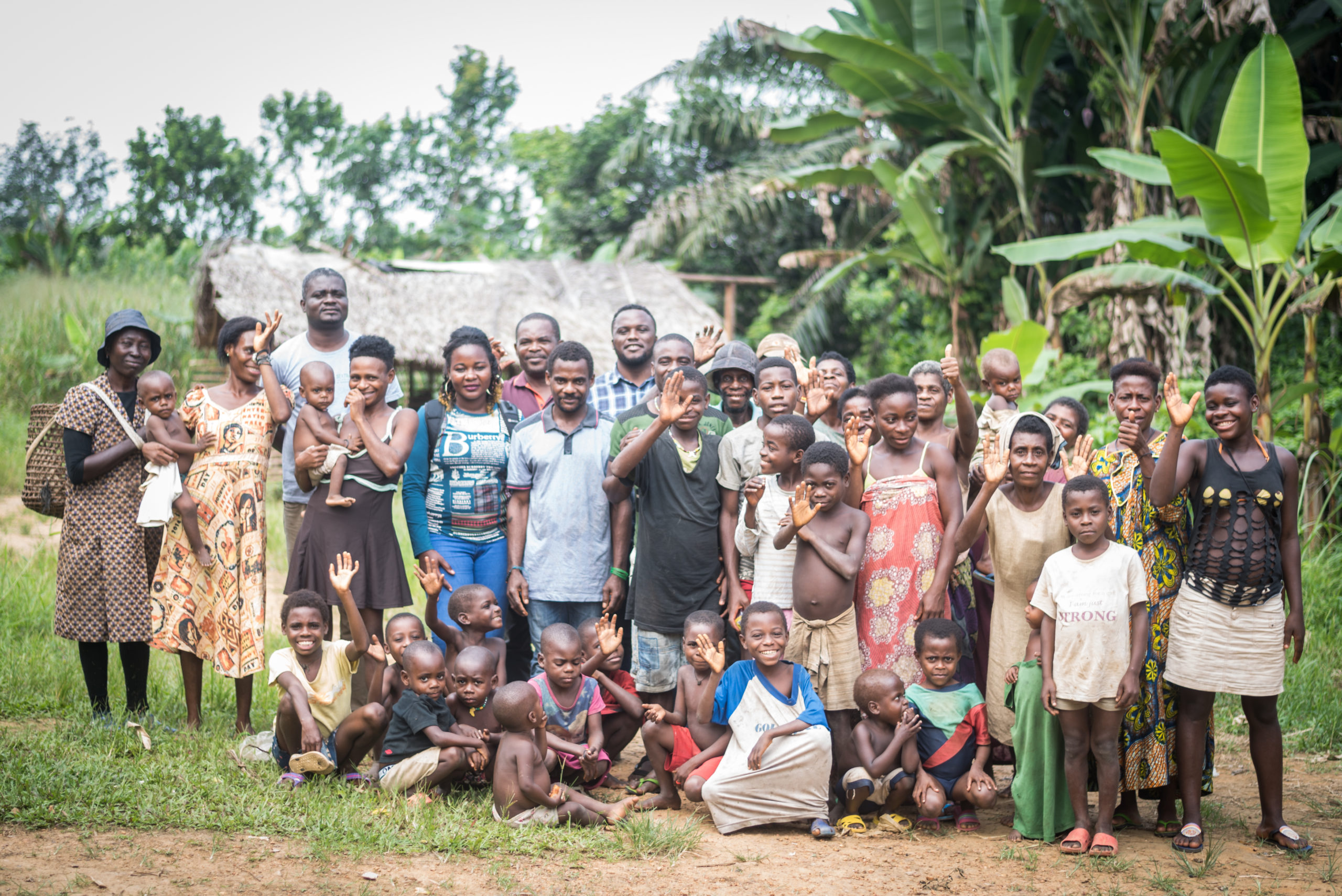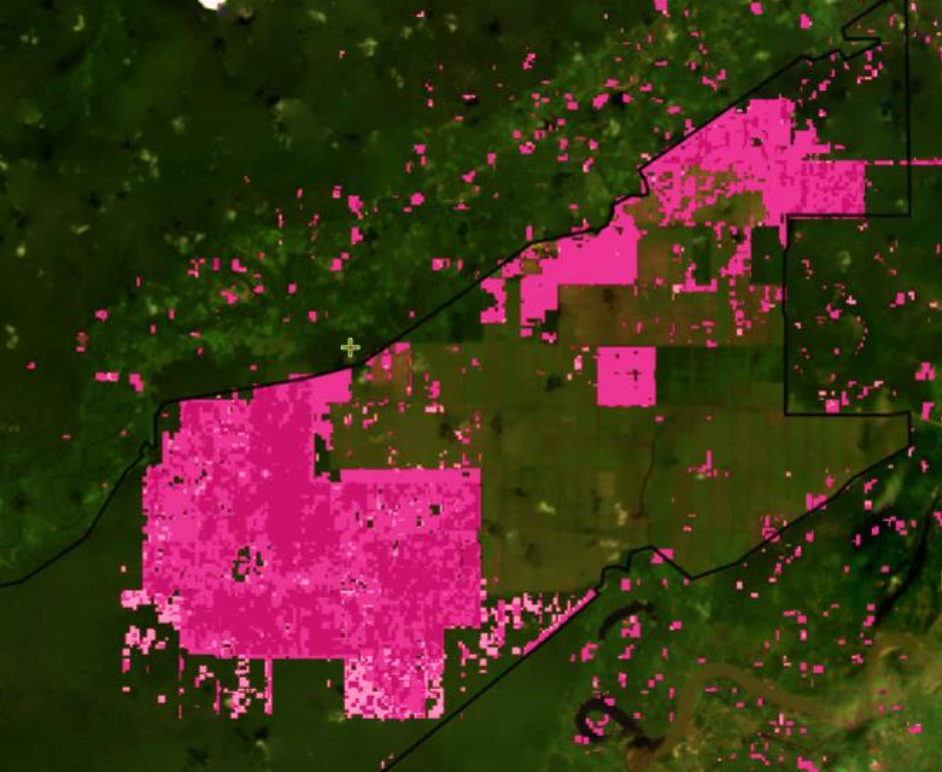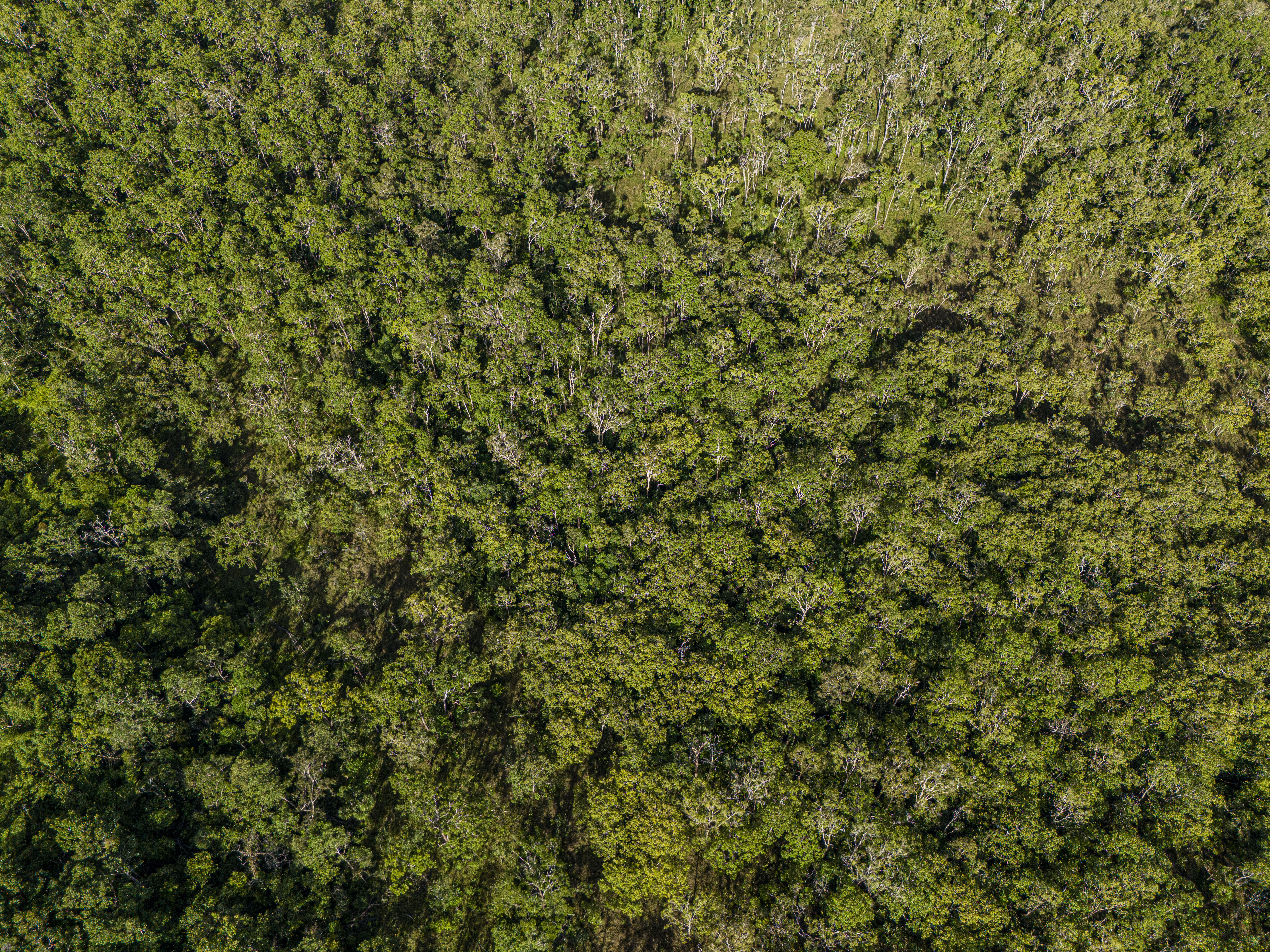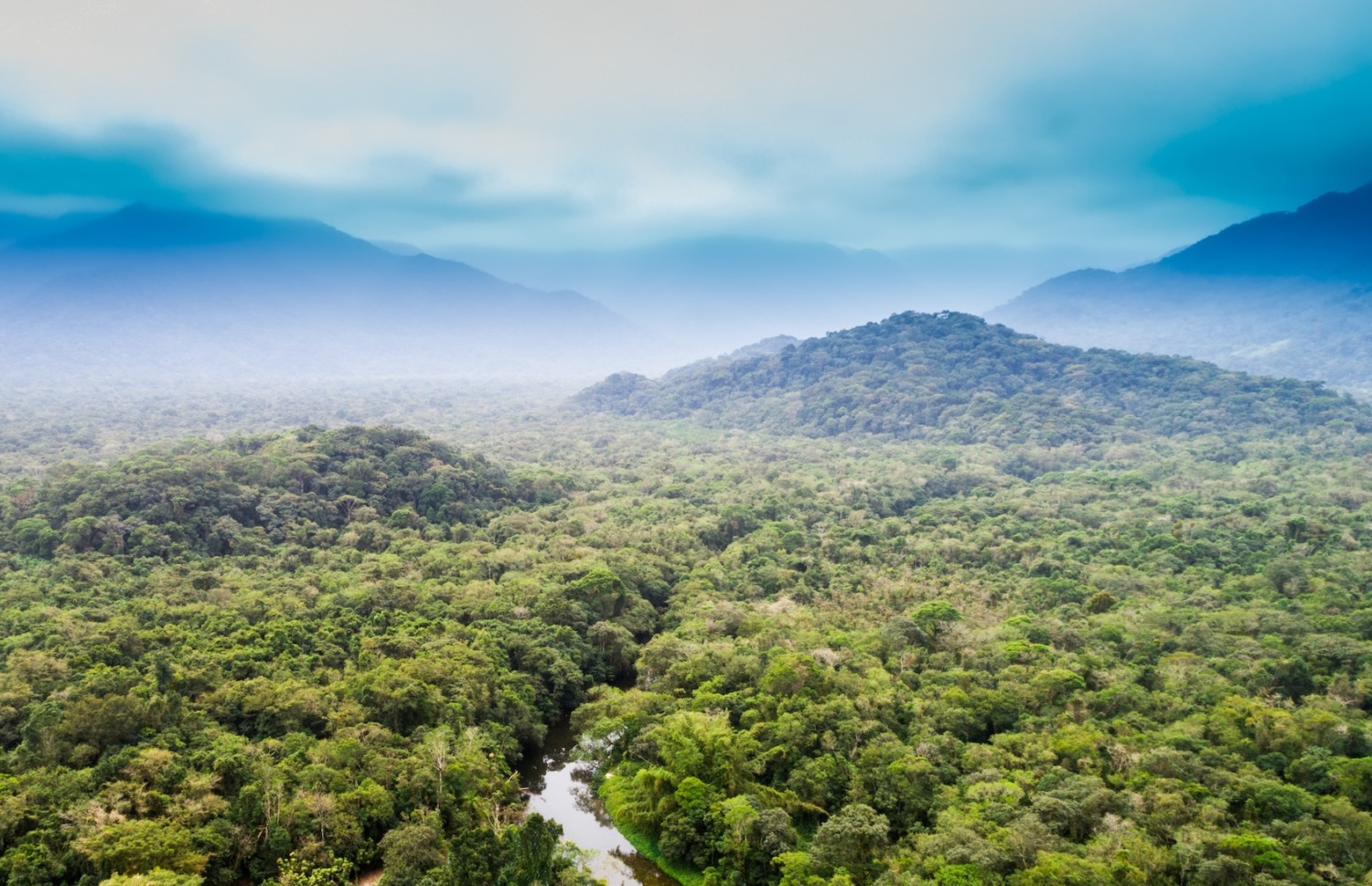
Progress Update on Cameroon Rubber Accord – October 2020
In the summer of 2019, Mighty Earth published a report documenting deforestation, community grievances, and human rights abuses at the Hévécam plantation of the world’s largest rubber company, Halcyon Agri, in southern Cameroon. Prior to the report’s publication, Mighty Earth met Halcyon for a negotiation with two local Cameroonian NGOs, Appui pour la Protection de l’Environnement et le Développement (APED) and Centre pour le Développement et l’Environnement (CED), to present our findings and secure a commitment from the company to undertake forest restoration and community reparations on Halcyon’s Cameroon plantations, as well as improving sustainability standards throughout the company’s global operations. An Accord was reached and signed by all parties to the negotiation.
Pursuant to the August 2019 Accord between Mighty Earth, APED, CED and Halcyon Agri, the update below provides a summary of our understanding of the most recent progress made by the company to implement its commitments to address historic, ongoing and emerging issues at its Hévécam and Sudcam rubber plantations in Cameroon, and reforms of its operations worldwide.
In July 2020, it was also brought to Mighty Earth’s attention that there had been a latex spill related to Halcyon operations in Cameroon. This spill, and Halcyon’s response, is also covered in the update below.
In one key domain, Halcyon went beyond the Accord by becoming the first rubber company to welcome EU regulation and an EU law to ban deforestation and human rights abuses entering supply chains.
General Update on Progress with the Accord
Since the publication of our Restoration and Reparations report, and the subsequent Accord with Halcyon, Mighty Earth and our partners have been tracking the company’s progress in implementing the corrective measures outlined in the agreement. We have met in person and virtually with company representatives several times to review and assess progress made on the Accord, and gaps remaining. Since our investigation and Accord, Halcyon has ceased all deforestation in Cameroon and implemented a No Deforestation policy for its worldwide operations. Regarding other elements in the Accord, progress has been made although some points have been held up by COVID-19.
Details on progress toward the agreed steps as of July 2020 are as follows:
1. The Cameroon Sustainability Council: The CSC, which previously had not developed an appropriate membership, has now been set up with a tiered structure, balancing smooth decision making with broad inclusion from local Cameroonian civil society, leaders from Indigenous groups and other communities, industry, and government. The Council presented its work to the largest national association of 50 local groups working on human rights and the environment, called the Plateforme Forêt et Communauté (Community & Forest Platform or CFP), and invited them to vote for their representatives to sit on the Council. They were also charged with helping lead on the invitation of community leaders affected by deforestation for rubber. The selection of affected community leaders was done with a balance of Indigenous and non-Indigenous leaders, and undertaken with open processes and extensive consultations.
The Council has recently met and begun to operate. Now with local civil society and affected community leaders included, outreach has begun to invite international groups with strong expertise in Cameroonian environmental and human rights issues, to join as advisors or members.
We look forward to the continued development of this council, the inclusion of international civil society, and to the Council pushing for zero deforestation rubber at a national level, in a way that is supportive of and synergistic with zero deforestation palm oil and zero deforestation cocoa initiatives for Cameroon.
2. Individual and community complaints collected and organized in a grievance mechanism: Legacy issues from Cameroonian communities on the ground have been logged by the company through extensive consultations with local communities. This was done in a process of community consultations starting in Hévécam and then in Sudcam areas, conducted in local languages and with the help of leading local NGOs. All legacy issues and grievances emerging from the consultations have been logged and categorized in a master-list, and prioritized depending on their level of urgency. These are in the process now of being addressed by the company, with participatory input from local communities and NGOs. The remedies to the grievances regarding the Cameroon operations are to be handled in 2020/21.
Halcyon has now developed dispute resolution and online & offline complaints/grievance mechanisms, details of which can be found online. The system which is now established covers any grievance regarding global operations, not only Cameroon.
In Cameroon, in addition to the online grievance system, there are now informal systems in place at a local level for oral reporting regarding new grievances to the local company representatives, or local NGOs (which then communicate with the company). These oral processes are in the process of being formalized, especially given literacy concerns.
There is still continuous work to be done to ensure that people in local communities have continued ability to effectively raise grievances (in Cameroon and worldwide), which Halcyon must then address as soon as possible.
Recent Latex Spill near Kribi demonstrates both progress and room for improvement
In early July, on the way to Kribi, a coastal port town in Cameroon, a truck belonging to one of Halcyon’s contractors carrying latex from the Hévécam plantation spilled its cargo. The latex leaked into the Eboundja River, which flows directly into the sea, polluting the soil and water and severely affecting neighboring fishing communities. After hearing about this spill from the local contractor, it seems that swift action was taken by Hévécam to clean up the spill and compensate people in the communities impacted by incident. However, according to our local partner APED, there is still room for improvement in the responsiveness of the company. Although the company responded quickly, those affected were upset this happened, and wanted better community consultation about how such events could be prevented in future. The incident was also not recorded on the online incident dashboard/list. Going forward, Halcyon should ensure that their incident or grievance dashboard or mechanism records all key cases as well as complaints lodged against the company or its contractors, so that affected individuals, communities and the company’s wider group of stakeholders understand and are satisfied by the process. Transparency and accountability are key to effective resolution of incidents and it is critical that the local and international community can all see where Halcyon is meeting engagement expectations.
3. Problematic ‘Cahiers de charge’: One of the primary legacy issues that haunt local people in and around the Hévécam plantation are the old “Cahiers de charge” agreements between the company and local communities that were drawn up years ago by local officials. Local communities interviewed felt that the Cahiers de charge had largely been disregarded and promises in them broken covering a variety of issues. Many of these issues raised were addressed through the dispute resolution/grievance processes of gathering on the ground concerns, cited in #2 above. While many of the issues raised by communities concerning these Cahiers de charge in recent consultations are being addressed through the dispute resolution/grievance processes, continuous work must be done on an ongoing basis to continue to rebuild trust with the communities.
4. Water: Cleaning up polluted water sources was a top priority issue identified in both the Mighty Earth investigation with APED, and subsequent grievance-gathering consultations between villages and the company.
- The company has acknowledged that there were issues around effluent quality.
- Their new factory in Sudcam Cameroon has treatment systems targeting zero effluent.[1] The system has already been built at the new factory, and will be operational by Q4 2020.
- Plans have been drawn up to establish a closed loop water treatment mechanism for Hévécam
- Halcyon’s Cameroonian closed loop systems for rubber processing to end effluents going in rivers will resemble the ones now operational in 17 of their Indonesian operations.
- Halcyon is reviewing additional such mechanisms for other geographies.
- In our latest dialogue with Halcyon, Mighty Earth stressed that there should be a priority on testing of rivers and installation of boreholes for clean water supply provided to all affected communities, to which the company agreed.
- Halcyon has committed to helping clean up rivers by changing its pesticide use on its plantations to avoid chemicals winding up in local waterways. Reducing pesticide application is now being continuously addressed, according to the company. The recent Halcyon sustainability-linked loan facility with Deutsche Bank was contingent on reduction in chemical pesticides per hectare, with targets and Key Performance Indicators specified in the loan and to be measured every year. Mighty Earth will request data on this to track reduced usage over time, particularly in relation to products with the highest and most persistent levels of toxicity to humans and wildlife.
- Mighty Earth will continue to push Halcyon to reduce all pesticide use on its direct and indirect rubber supply worldwide.
5. Traceability and transparency: Ensuring supply chain transparency is a vital first step for stopping deforestation, human rights abuses, and labor issues in any supply chain. Since the Accord, Halcyon has moved toward greater traceability and transparency for global operations through the Zoological Society of London Sustainability Policy Transparency Toolkit (ZSL SPOTT), a supply chain transparency assessment tool. SPOTT assessed multiple natural rubber producers and processors – including Halcyon – on the public disclosure of their policies, operations and commitments to environmental, social and governance (ESG) best practice. Each company received a percentage score and a ranking as a measure of its transparency in relation to ESG risks. Halcyon is engaging in SPOTT group-wide, for all 12% of the world’s rubber trade that the company controls, not only Cameroon sourcing. Halcyon was rated at 69.6%, the second-best performer in the ZSL SPOTT rubber commodity ranking. A note below this blog reviews the elements that are covered by SPOTT for rubber. Mighty Earth will continue to push Halcyon to improve its traceability and transparency on all direct and indirect rubber supply worldwide, largely through ZSL SPOTT.
6. Indigenous rights: There is still much work to be done on the issue of Indigenous Peoples’ rights, given the legacy of decades of serious, widespread abuses. Civil society and Halcyon must support the government, which must undertake work at the national and local level to ensure Indigenous representation, civic inclusion, and rights like birth certificates, citizenship papers, and land and village denomination rights. Halcyon should form partnerships and work together with government and civil society to ensure the needs of affected Indigenous communities are addressed.
7. Equity in employment: The inclusion of equity for local people, including Indigenous People, and women at all levels of employment in the company’s Cameroon plantations was a concern brought forward in Mighty Earth’s initial investigation. The company has promised to address this issue and has since been collecting data on the current state of affairs (which Mighty Earth looks forward to reviewing), as well as revising management practices. Halcyon must continuously improve equitable hiring and retention practices.
8. Supporting smallholders in Cameroon: In developing their smallholder outgrower program, Halcyon has worked with Proforest on environmental criteria assessments, and with APED and APIFED on community engagement. The smallholder program will ensure ‘No Deforestation’ for all operations. It launches next year. Mighty Earth will continue to engage with the company on the inclusivity of this program, particularly around inclusion of local stakeholders, and Indigenous and gender inclusiveness and equity.
9. Zero deforestation: Halcyon has committed to completely stop deforestation on all its plantations, including the ones in Cameroon. Following recent discussions with the company, as well as with local civil society partners, and satellite map analysis of Cameroon, Mighty Earth believes that these commitments are currently being upheld.
Halcyon has also committed to ensuring that its rubber sourcing outside of Cameroon is also not linked to deforestation, including the company’s supply chains in the Mekong region (which includes Cambodia, Laos, Thailand and Vietnam). Mighty Earth is awaiting further reporting and verification from Halcyon on progress in ensuring deforestation-free rubber across all of its supply chains in Asia, including the complex issue of deforestation within indirect supply originating from smallholder rubber farmers. Halcyon’s work to de-linking from sourced rubber connected to possible deforestation includes the launch of its Sustainable Sourcing Policy developed by Rainforest Alliance.
10. Community Forest in Cameroon: As part of its No Deforestation commitment, Halcyon agreed not to touch the remaining forested land in the newer concession areas, but rather to convert this land to a community forest, empowering local forest-dependent communities, including Indigenous communities, to become stewards of the land. Rather than give these areas back to the government, which could risk the forest being granted as a concession to another company that could seek to exploit it, this land will be held and managed as a community forest, through a model to be determined by local people, with the help of Cameroonian civil society organisations. A plan for the forest was drafted, and the final decision on the management of the community forest land bordering the Dja Faunal reserve is being determined by the Cameroon Sustainability Council which includes local NGOs and local affected community leaders. The Council voted on a “Sudcam and Communities co-management land with communities-controlled use. Reasons for this are
- Opportunity for co-management/participatory management of the area with communities
- Sudcam has long term lease of the forest and therefore Sudcam co-management should be acceptable
- May not require any complex process with government if this is presented as Sudcam leading with communities’ support
- The management plan that will be developed will be done in a way that it excludes logging but serves both Sudcam conservation interest and communities’ use
- Provides potential for exploring PES for communities in the future
- Government may not able to grant logging permits (sale of standing volume) to logging companies in the forest area.
- It may not require gazettement because it is part of Sudcam concession
- Management plan and prescriptions can go as far as the lease period for Sudcam
Overall, Halcyon has taken vital and encouraging steps toward forest protection, community engagement, responsiveness, and addressing current and previous grievances. Nonetheless, the company still has a long journey ahead to make its operations in Cameroon and worldwide fully sustainable. The continued inclusion of local stakeholders, particularly Indigenous People, will be key to continuing progress going forward. Mighty Earth remains committed to working with the company to ensure that all elements of the Accord are advanced.
Note – The SPOTT rubber disclosure framework include the following elements:
- Sustainable natural rubber policy or commitment for all its operations
- Sustainability policy or commitment applies to all sourcing
- High-level position of responsibility for sustainability
- One or more board members have responsibility for sustainability
- Percentage or number of women board members
- Percentage or number of women in senior management team
- Sustainability report published within last two years
- Member of multiple industry schemes or other external initiatives to improve sustainability or transparency of natural rubber production
- Activities with government and/or NGOs to improve the sector’s sustainability
- Climate risk assessment available
- Lists countries and operations
- Total land area managed/controlled for natural rubber production (ha)
- Total rubber planted area (ha)
- Outgrower/scheme smallholders planted area (ha)
- Unplanted (areas designated for future planting)(ha)
- Conservation set-aside area, including HCV area (ha)
- Maps of estates/management units
- Number of company owned rubber processing facilities
- Maps or coordinates of company owned rubber processing facilities
- Management plans for natural rubber production are available for all estates/management units
- Commitment to traceability of the whole supply chain
- Commitment to zero conversion of natural forests
- Zero conversion commitment applies to all sourcing
- Evidence of monitoring deforestation
- Amount of deforestation recorded
- Implementing a landscape-level approach
- Commitment to biodiversity conservation
- Identified species of conservation concern, referencing international or national system of species classification
- Examples of species and/or habitat conservation management
- Commitment to protect forest areas from illegal activities
- Commitment not to use genetically modified organisms
- Commitment to conduct High Conservation Value (HCV) assessments
- High Conservation Value (HCV) assessments available
- High Conservation Value (HCV) management and monitoring plans available
- Commitment to the High Carbon Stock (HCS) approach
- Commitment to conduct social and environmental impact assessments (SEIAs)
- Social and environmental impact assessment (SEIAs) undertaken, and associated management and monitoring plans
- Commitment to no planting on peat of any depth
- Landbank or planted area on peat (ha)
- Implementation of commitment to no planting on peat of any depth
- Commitment to best management practices for soils and peat
- Evidence of best management practices for soils and peat
- Commitment to create/support agroforestry systems
- Evidence of creating/supporting agroforestry systems
- Commitment to best/sustainable tapping practices
- Evidence of best/sustainable tapping practices
- Commitment to zero burning
- Evidence of management and monitoring fires
- Details/number of hotspots/fires in company estates/management units
- Time-bound commitment to reduce greenhouse gas (GHG) emissions intensity
- Report GHG emissions intensity
- Report GHG emissions from land use change
- Methodology used to calculate GHG emissions
- Progress towards commitment to reduce GHG emissions
- Time-bound commitment to improve water quality (BOD and COD)
- Progress towards commitment on water quality (BOD and COD)
- Treating effluents from processing facilities
- Time-bound commitment to improve water use intensity
- Progress towards commitment on water use intensity
- Commitment to protect natural waterways through buffer zones
- Implementation of commitment to protect natural waterways through buffer zones
- Commitment to minimise the use of chemicals, including pesticides and chemical fertilisers
- No use of World Health Organisation (WHO) Class 1A and 1B pesticides
- No use of chemicals listed under the Stockholm Convention and Rotterdam Convention
- Implementation of commitment to reduce chemical usage
- Integrated Pest Management (IPM) approach
- Chemical usage per ha or list of chemicals used
- Commitment to human rights
- Commitment to human rights applies to all sourcing
- Commitment to respect Indigenous and local communities’ rights
- Commitment to respect legal and customary land tenure rights
- Commitment to free, prior and informed consent (FPIC)
- FPIC commitment applies to independent suppliers excluding smallholders
- Details on Free, prior and informed consent (FPIC) process available
- Examples of local stakeholder engagement to prevent conflicts
- Details of process for addressing land conflicts available
- Commitment to support the inclusion of women across rubber operations, including addressing barriers faced
- Commitment to mitigate impacts on food security
- Progress on commitment to mitigate impacts on food security
- Commitment to provide essential community services and facilities
- Progress on commitment to provide essential community services and facilities
- Commitment to provide business/work opportunities for local communities
- Commitment to respect all workers’ rights
- Commitment to Fundamental ILO Conventions or Free and Fair Labour Principles
- Commitment to eliminate gender related discrimination with regards to employment and occupation
- Percentage or number of temporary employees
- Percentage or number of women employees
- Commitment to pay at least minimum wage
- Progress on commitment to pay at least minimum wage
- Reporting of salary by gender
- Commitment to address occupational health and safety
- Time lost due to work-based injuries
- Reduction of time lost due to work-based injuries
- Number of fatalities as a result of work-based accidents
- Zero fatalities as a result of work-based accidents
- Provision of personal protective equipment and related training
- Member of the Global Platform for Sustainable Natural Rubber (GPSNR)
- Submitted self-declaration form for the Sustainable Natural Rubber Initiative (SNR-i)
- Commitment to become 100% certified under voluntary sustainability certification scheme
- Certified under voluntary sustainability certification scheme
- Percentage area (ha) FSC certified
- Commitment to support smallholders
- Programme to support scheme smallholders / outgrowers
- Number or percentage of scheme smallholders / outgrowers involved in programme
- Programme to support independent smallholders
- Number or percentage of independent smallholders involved in programme
- Percentage of supply from smallholders
- Percentage of supply coming from agroforestry
- Commitment to pay premium for high quality rubber for smallholders
- Process used to prioritise, assess and/or engage independent suppliers on compliance with company’s policy and/or legal requirements
- Process engage smallholders on compliance with company’s policy and/or legal requirements
- Number or percentage of suppliers assessed and/or engaged on compliance with company’s policy and/or legal requirements
- Commitment to ethical conduct and prohibition of corruption
- Progress on commitment to ethical conduct and prohibition of corruption
- Whistleblowing procedure
- Own grievance or complaints system open to all stakeholders
- Details of grievances or complaints disclosed
[1] https://www.halcyonagri.com/wp-content/uploads/2020/04/29Apr_HAC_Annual_Report_2019_Book_2_People_Planet.pdf, p 49, p 70
Photo: Community meeting with Mighty Earth and APED (C) Mighty Earth


